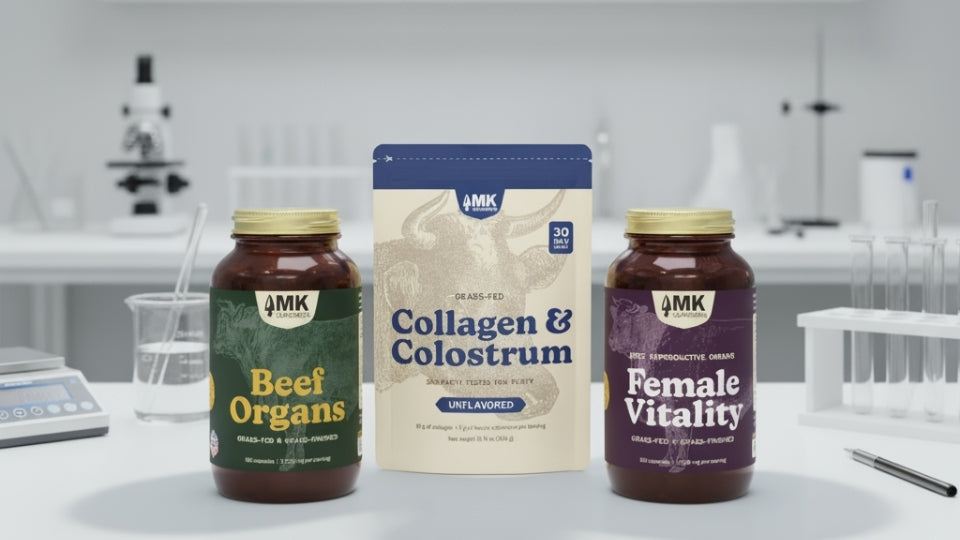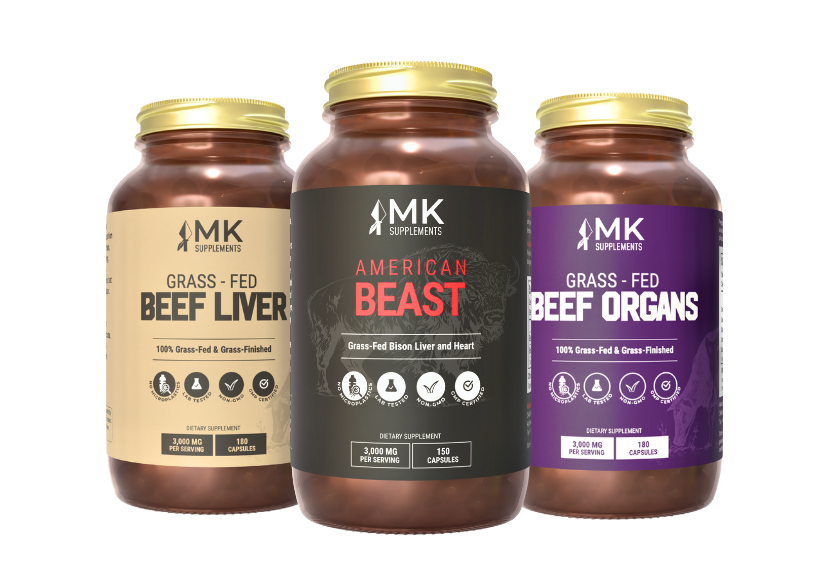
Why Our Organ Supplements Are Lab-Tested Five Times (And What That Means for You)
Michael KummerAt MK Supplements, we believe you deserve supplements that are packed with the nutrients nature intended, and which are free of toxins and other contaminants that could harm your health.
That’s why we’ve developed a multi-step production process that includes five layers of testing, and it’s why we make our test results publicly available: we want our customers to have full confidence that our supplements contain pure, potent organs — and absolutely nothing else.
A Snapshot of Our Production Process and Testing Journey
By the time our supplements arrive at your doorstep or mailbox, they’ve gone through five separate test cycles to guarantee safety and efficacy. From a harvest site rinse to a final third-party lab audit, each of these steps adds a layer of assurance, so you can trust every capsule or scoop.
Before we dive in, here’s one more note on sourcing: all our organs come from grass-fed, pasture-raised cattle and bison.
Compared to grain-fed animals — which can develop acid-resistant bacteria that survive stomach acid and cause illness — pasture-raised ruminants naturally suppress those harmful microbes. That means our raw materials start out cleaner and safer, right from the farm.
Step 1: Gentle Disinfection with Peroxyacetic Acid
Right at the harvest site, each organ receives a quick rinse in a food-grade peroxyacetic acid solution, which is a simple mix of hydrogen peroxide and vinegar. This non-toxic wash neutralizes bacteria immediately without using high heat or harsh chemicals that can degrade heat-sensitive nutrients, such as B vitamins and digestive enzymes.
Step 2: Flash-Freezing to “Lock In” Freshness
Within minutes of harvest, each organ is placed on dry ice and transferred to a -40 °C freezer. Rapid freezing halts microbial activity, enzyme breakdown and oxidation, which are the primary factors that degrade nutrients. This “flash freeze” ensures that the organ’s nutrient profile stays exactly as nature intended.
Did you know? Enzymes and delicate vitamins can start to break down within just a few hours at room temperature. Our ultra-cold protocol buys us the time to test without nutrient loss.
Step 3: First Certificate of Analysis (Raw Material Testing)
Before any further processing occurs, we pull a sample of the frozen organ and run our first battery of tests. Specifically, we test for:
- Heavy metals, such as lead, mercury, arsenic and cadmium, which can accumulate in organ tissue over time. (Virtually all animal tissue and all plant matter contains at least trace amounts, but our testing ensures that our products contain levels well below even the most stringent safety thresholds.)
- Total aerobic microbial count, which is a measurement of overall bacterial levels (to catch any potential spoilage).
- Mold and yeast. Even low-moisture powders can harbor mycotoxins, so we screen thoroughly.
- Common pathogens like e.coli, salmonella and staphylococcus aureus, which are the key culprits in foodborne illness.
Batches that pass this round earn our first Certificate of Analysis (COA). If any result falls outside our strict limits, that batch is discarded. No exceptions.
However, our commitment to sourcing quality organs means that so far, we’ve never had a batch fail testing.
Step 4: Nutrient-Safe Freeze-Drying and Retesting
Rather than using high-heat ovens, we freeze-dry our organs under cold, low-pressure conditions. This method offers the following advantages:
- It removes moisture naturally, creating a stable powder that resists microbial growth.
- It preserves the organ’s delicate nutrients, ensuring that its vitamins, minerals, amino acids and enzymes remain intact.
This process is a stark contrast to many supplement manufacturers, who use high heat to convert fresh organs into powder.
Once milled into a fine powder, we immediately retest for moisture content, microbial levels, and any residual contaminants. This step confirms that the drying and milling process didn’t introduce any new issues.
Step 5: GMP-Certified, FDA-Inspected Manufacturing
Our freeze-dried organ powders are then delivered to a partner facility that operates under Good Manufacturing Practice (GMP) guidelines that include:
- Written procedures for every step, from equipment sanitation to batch record-keeping.
- Calibrated equipment to ensure consistent results.
- Staff training on hygiene, cross-contamination prevention, and safety protocols.
Additionally, the FDA regularly inspects the facility to verify sanitation, traceability, quality control, and adherence to federal food safety regulations.
With both GMP certification and FDA oversight, you can count on consistent quality in every capsule.
Step 6: Identity Verification and Capsule-Surface Testing
When our powder arrives at the manufacturing partner’s facility, they run an identity test using techniques such as infrared spectroscopy to confirm that each sample is genuine organ tissue, not filler or imposter ingredients. After encapsulation and bottling, they swab capsule surfaces and culture those swabs to verify that the packaging environment wasn’t contaminated.
This dual check prevents both mislabeling and contamination during the final steps.
Step 7: Independent Third-Party Validation
Even after our rigorous in-house checks, we still send random finished bottles to an accredited external lab. They rerun the whole testing panel (heavy metals, microbial counts, mold and yeast) and include our annual glyphosate/pesticide screen. Each lab report becomes a Final COA that we publish on our website, batch by batch.
This independent audit rounds out our five test cycles and provides you with complete transparency.
What We Test For and Why It Matters
| Test | Why It Matters |
|---|---|
| Heavy metals (Pb, Hg, As, Cd) | Prevents toxic buildup, critical for organ-derived nutrients. |
| Total aerobic microbial count | Ensures no hidden bacteria can grow after bottling. |
| Mold and yeast | Stops harmful mycotoxin formation, even in low-moisture powders. |
| Pathogens (e.coli, salmonella, staph. aureus) | Protects against common foodborne illnesses. |
| Glyphosate and pesticides (annual screen) | Validates our pasture-only, chemical-free sourcing practices. |
The Bottom Line
From a gentle peroxyacetic acid rinse at harvest to nutrient-safe freeze-drying, GMP-certified production and independent third-party lab verification, our multi-step process ensures every bottle and pouch of MK Supplements delivers clean, potent, and transparent nutrition you can trust.

